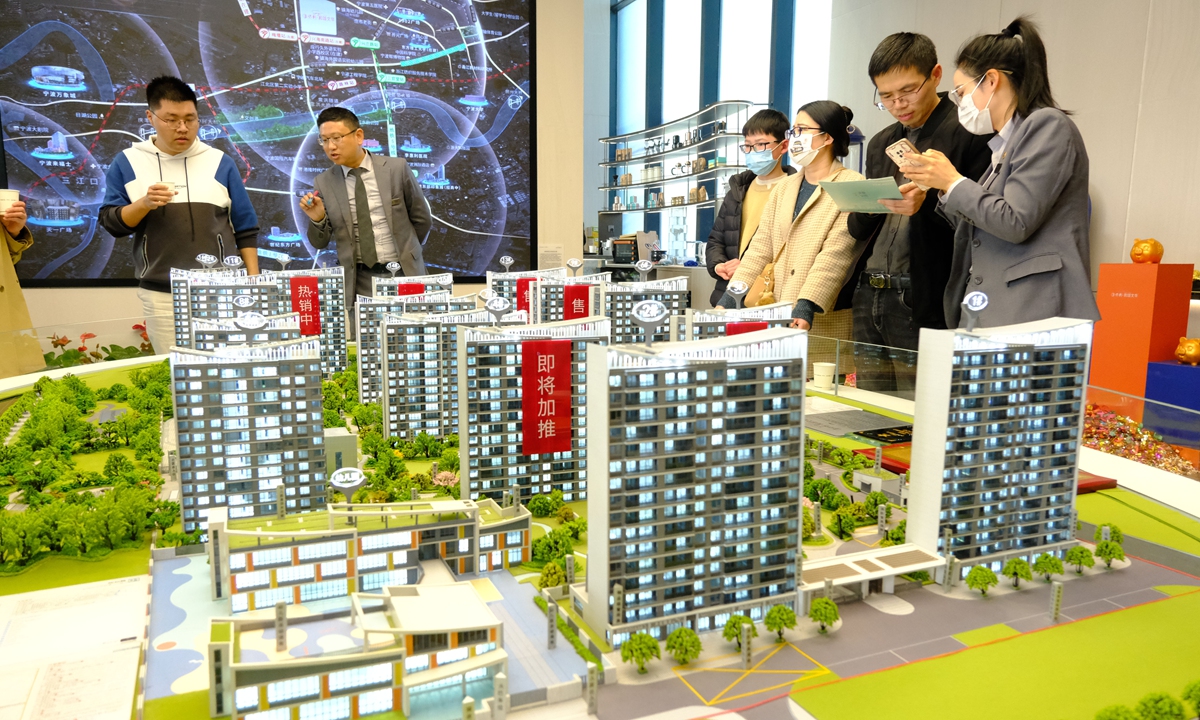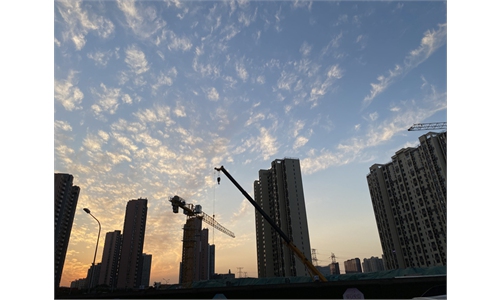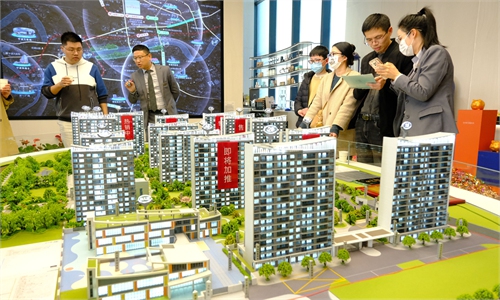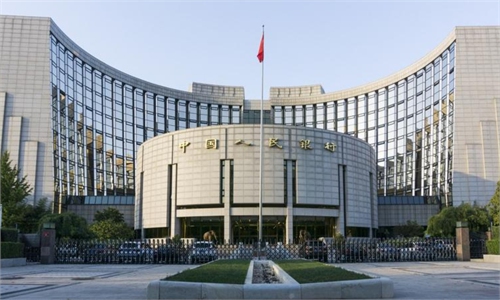
Citizens visit a property developer's sales office in Ningbo, East China's Zhejiang Province, on March 4, 2023. Photo: VCG
Investment in Chinese real estate sector remained on a declining trend in the first quarter, but sales areas of residential buildings reversed their negative growth for the first time since February 2022, indicating a stabilizing and continuous recovery of the property market, according to official data on Tuesday.
Property development investment dropped 5.8 percent year-on-year to 2.6 trillion yuan ($377.8 billion) in the January-March period, slightly worse than a 5.7-percent decline during the first two months, according to the National Bureau of Statistics (NBS).
But signs of recovery are also emerging. Property sales rose 4.1 percent year-on-year in the first quarter to 3.05 trillion yuan and new-homes sales jumped 7.1 percent, higher than the 3.5-percent growth registered in the fourth quarter last year, according to the NBS data.
"It is encouraging. It indicates that buyers are regaining confidence in developers. If the market is able to absorb pre-sales, developers could generate new cash flow through residential sales in 2024," said ING Bank Chief Greater China Economist Iris Pang.
In terms of sales areas, the sales area of commercial housing stood at 299.46 million square meters, a decrease of 1.8 percent year-on-year, but growth in sales area of residential buildings shot up to 1.4 percent, reversing the negative growth recorded since February last year.
"The warming market suggested that market confidence has rebounded, and the property market is on track to recovery," Yan Yuejin, director of Shanghai-based E-house China Research and Development Institution, told the Global Times on Tuesday.
Major Chinese cities generally reported rising home prices in March, when 64 out of 70 large and medium-sized cities saw month-on-month increases in new home prices, up from 55 in February, NBS data showed on Saturday.
Meanwhile, 57 cities witnessed higher resale home prices, up from 40 in February.
China's property market went through a tough year in 2022, impacted by factors such as COVID-19, dented market sentiment and shrinking demand.
"The continuing decline in investment shows uncertainty in the recovery," Yan said, adding that "it is still necessary to continue to boost the housing market and increase support for real estate companies to drive the curve upward."
Policymakers have rolled out a series of supportive measures to shore up the industry, including encouraging commercial banks to grant loans to fund real estate projects and allowing cities to adjust the lower limit for first-home mortgage rates.
Property developers without debt default issues should be able to obtain financing to continue the construction of existing residential projects, according to Pang.
Ni Hong, minister of housing and urban-rural development, said that he has full confidence in the steady recovery of China's property market during the country's two sessions in March this year.



